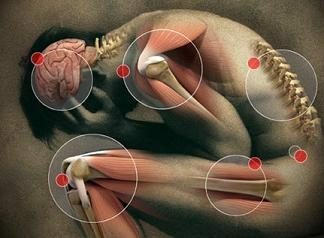10 Examples of Types of Emotions
Examples / / July 31, 2022
The emotions they are psychophysical reactions of people to life situations. They make up a variety of postures and sensations that condition behavior in the face of lived experiences. For example: The joy of knowing that an achievement has been achieved.
Chemically, emotions are the result of the release of neurotransmitters that affect the individual and that ultimately become expressions of language and states that can be permanent or transitory. For example:The anger that is experienced when seeing someone commit an injustice.
From psychology, several schemes have been proposed that classify them based on a set of basic emotions that give way to other secondary ones or combinations of the first ones.
- See also: Difference Between Emotions and Feelings
Plutchik's wheel of emotions
Psychologist Robert Plutchik proposed in 1980 a scheme that had eight basic emotions of which eight advanced ones emerge and among them they oppose and interact with each other generating new emotions. These are:
- Ecstasy. From this main emotion come the happiness and the serenity.
- Admiration. From this emotion comes the confidence and approval.
- Terror. From this emotion comes fear and dread.
- Astonishment. From this emotion come surprise and distraction.
- Grief. Sadness and melancholy arise from this emotion.
- Hatred. From this emotion aversion and boredom arise.
- Rage. From this emotion anger and annoyance arise.
- Surveillance. From this emotion comes anticipation and interest.
Emotions and their intensity
For his part, Klaus Scherer makes a study in which he identifies a series of emotions and the way in which can be intensified depending on whether one tends to remain calm, to feel pleasure, discomfort, etc.
His list of emotions is:
- Interest. It is the emotion that is experienced when you want to take an action or do something to have a specific benefit or compensation. For example: A singer who is about to audition thinking of getting a concert.
- Fun. It is the state in which the person freely enjoys his environment or the experience he is going through. For example: A fan who attends the theater to see a comedy.
- Pride. It is the emotion that is experienced when having achieved an important achievement in life or having done something really well after a long time. effort and dedication. For example: A student on his college graduation day.
- Happiness. It is the emotion that occurs when something good has happened. For example: A father who receives his son who comes to visit to spend the holidays.
- Pleasure. It is the intensification of an activity that is perceived as positive and delights the senses. For example: Try a favorite food dish.
- Contentment. It is the emotion that is experienced when something produces satisfaction or is in accordance with what was expected for the moment. For example: A fan who leaves the cinema after seeing a movie that he thought was good.
- Love. It is the emotion that is experienced in relation to things that produce a great sense of accomplishment and that are experienced as something extremely positive and desirable. For example: A man at the time of marrying his lifelong girlfriend.
- Admiration. It is the emotion that occurs when you feel that you find in other people the characteristics that are desirable and that are inspiring for your own life. For example: A student who wants to become like her teacher at some point.
- Relief. It is the emotion that is experienced when a problem has been overcome, a solution to a complicated situation has been found or the environment is no longer perceived as a threat. For example: A young man after learning that he has been accepted to the university he applied to.
- Compassion. It is the emotion that is experienced when understanding and putting yourself in the place of another person who is going through a difficult moment in life. For example: A friend who goes to the hospital to visit another who is receiving treatment for an illness.
- Sadness. It is the emotion that is experienced when something bad has happened and the person identifies with the suffering. For example: A viewer who sees the disasters of a war in another country on the news.
- Fault. It is the state in which a person thinks that he has done something bad or wrong and feels the weight of an action that he considers wrong and unfair. For example:A son who yells at his mother and feels terrible about it.
- Repentance. It is the emotion that goes through when you have made a mistake that cannot be corrected. For example: A worker who quit his previous job and, not getting a new one, thinks he shouldn't have left.
- Shame. It is the emotion that is experienced when an action is carried out that is believed to be inappropriate in the circumstances or with which one does not feel comfortable due to its ethical or moral framework. For example: A teenage girl who doesn't like being the center of attention and has to sing a song in front of the entire class.
- Disappointment. It is the emotion that arises from a situation that was not resolved in the way the person expected or when another behaves in a different way than he thought he was going to act. For example: A son whose father accuses him of having done something wrong when he thought he was going to support him in his decisions.
- Fear. It is the negative emotion that is felt with the perception that there is danger or that something bad is about to happen. For example: A woman walking in the middle of the night down a dark street in a dangerous neighborhood.
- Dislike. It is the emotion that is experienced when you disagree with an idea expressed by another person or by some circumstance. For example:A student who feels bad when she sees that someone else is being bullying.
- Contempt. It is the feeling of rejection towards something or someone. For example: A woman who can't stand someone talking about religion in social gatherings.
- Hatred. It is the emotion of antipathy towards something, that is, the opposite of love. For example: A man who cannot bear to be flattered by a political ideology with which he does not agree.
- Rage. It is the state in which a huge anger is felt that the person is tempted to take revengeful actions or to vent her anger. For example: A person who discovers that her partner has lied to her and feels a great desire to take revenge.
Other types of emotions
There are many theories about the classification of human emotions, some that are not part of the previous classifications are:
- Boredom. It is that emotion that consists of being in an intolerable situation and that is accompanied by the need for it to end soon because it is not in the person's interest. For example: An individual who waits many hours in an airport for his flight to leave.
- Worship. It is the state in which a person feels deep admiration for another to the point of considering them superior. For example: A fanatic whose life follows the career and movements of a famous actor.
- Anxiety. It is the emotion experienced by a person who lives in a hurry and considers that there is something in her life that needs to be solved quickly and immediately. For example: A student updating a university page waiting for final grades to be published.
- Calm. It is the state of mental tranquility and harmony in relation to the outside. For example: A subject in the middle of a meditation class.
- Confusion. It is the state in which the person does not understand a situation, idea, indication or anything in particular, being involved or not. For example:A student who fails to do some arithmetic exercises correctly.
- Envy. It is the feeling of wanting something that another person has. It is an emotion with negative connotations. For example: A man who wants to have the new car that his neighbor bought.
- Nostalgia. It is the emotion that is experienced when you remember something or someone who has gone to another place. For example: An old man who returns to the place where he studied elementary school.
- Sympathy. It is the emotion that denotes that you have appreciation or liking for something or someone. For example: A boss that all his employees love.
Examples of types of emotions
- A neighbor who discovers that he is burning down his house experiences the thrill of fear.
- A person who has been scammed in a business feels Rage.
- A yoga practitioner experiences the Calm down when he meditates.
- A woman who has her first child lives the emotion of love.
- A driver who discovers that his car has run out of gas feels disappointment.
- A diner in a restaurant who is brought a dish that he did not order goes through the emotion of dislike.
- A speaker who makes a mistake in a public presentation feels shame.
- A follower of a singer when he goes to one of his presentations goes through the emotion of worship.
- A person waiting in line to enter the bank may feel boredom.
- A man who returns home and discovers that he had turned off the gas faucet feels relief.
Interactive exercise to practice
Follow with:
- emotional intelligence
- Types of attitudes
- Empathy
- Words that rhyme with "emotions"
References
- Scherer KR. What are emotions? And how can they be measured? Social Science Information. 2005;44(4):695-729.
- Zhang, Feiran & Markopoulos, Panos & Bekker, Tilde. (2018). The Role of Children’s Emotions during Design-based Learning Activity – A Case Study at a Dutch High School.
- “The 27 types of emotions: what are they and what do they consist of?” in Medicoplus.
- “Emotions: Why is knowing how to know and control them so important?” in Iurlek (Igor Urraza).



